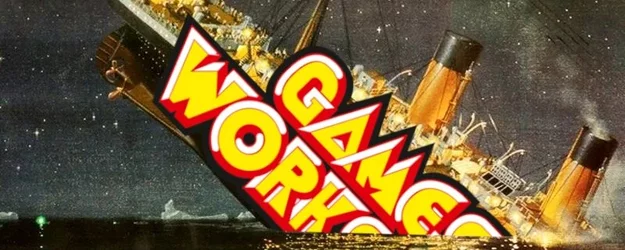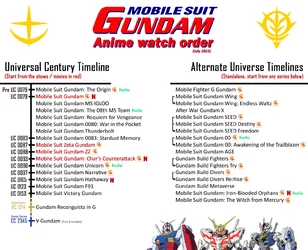https://x.com/HMBohemond/status/1891554247428407784
(A)

Let us all be honest with ourselves to begin with. Warhammer is not in a good spot, despite a coat of paint mimicking success.
Rising costs on already overinflated product pricing. A continuing string of bad codex releases in an unpopular edition. Nonsensical lore rewrites (as opposed to retcons) that not only add nothing, but actively detract from the quality of the setting. All atop an increasingly obtuse barrier of entry for both tabletop and the lore.
Some may ignore it, but the continued dip in sales with each financial report support it. Even if Games Workshop remains in the green at the moment, the frustration is palpable even with some of their most ardent fans. People are sticking around not out of enjoyment, but hope that it may improve. The success of the Old World has more or less carried Games Workshop in 2024, with their other products flagging due to minimal releases or apathy over bad design and writing. That success won't last forever either with the Old World's limited release scope.
However, the general belief among tabletop wargame players is that Games Workshop won't ultimately fail because it's simply always going to be number one. The classic "too big to fail" fallacy at play. In reality, however, the closer you are to the top the closer failure becomes.
Games Workshop wasn't always number one. In a time long past, FASA's tabletop mech game Battletech ruled supreme with Warhammer tailing. It took FASA's implosion as a company for Warhammer to gain the #1 spot. While Catalyst Game Labs has fumbled the tabletop license, the older releases from before Topps' acquisition of the license is still an excellent, multifaceted combined arms sci-fi wargame. I personally recommend any release up to the end of the Jihad era, when FASA fell apart.

Pictured: Mecha punching each other. Instant neuron activation.
Meanwhile, the mid-2010's were a bad time for Warhammer. Age of Sigmar debuted and immediately fell on it's face, failing to find an audience in Warhammer Fantasy fans or attracting the kind of new fans Games Workshop wanted. Warhammer 40,000 as well was having a bad time, with 6th edition being a disaster and 7th unpopular due to poor balance. During this time, Warhammer 40k was straddled on the charts by Star Wars. With X-Wing in the #1 spot and Armada at #3.

The consequences of bad decision making.
Once again, Games Workshop was ultimately saved not by good business decisions but rather simple luck. Star Wars, as quickly as it returned to public consciousness, used up all it's good will with fans and the public at large. Games Workshop didn't so much get first as it's opponents in the race tripped while GW limped across the finish line.
Since this time, Games Workshop and Warhammer have enjoyed an uncontested position at the number one spot once again. This has been inflated by the discovery of the game outside it's general audience due to COVID lockdowns in 2020. However, it's now five years removed and the money from bored people in lockdown is proving to be finite. Many of said newcomers already left when life returned to normal. Meanwhile, Games Workshop has grown apathetic at all levels to the desires of their fans. Catering to a small minority of tournament players in terms of rules, and an even smaller minority of ideologically captured weirdos in terms of writing. To say nothing of their continued restraining of player creativity in terms of building one's models.
Space Marine 2 and Secret Level provided shots of mainstream popularity, and it's clear Games Workshop wants wider cultural relevance. The failed streaming service Warhammer+ and the Amazon deal are proof enough of that. All the same, they lack said relevance outside these momentary boosts of recognition. With Warhammer flagging, something has to give soon.
Enter Mobile Suit Gundam, and it's upcoming tabletop game Gundam Assemble.

The situation with Mobile Suit Gundam and Gundam Assemble almost perfectly mirrors the arrival of the Star Wars miniatures games:

Much easier to understand than a Horus Heresy read order.
It's also a testament to Gundam's flexibility as a franchise that it spans a breadth of themes and tones. From Universal Century's semi-hard, war torn military science fiction, to AU's like G Gundam's super robot tournament arcs, Wing's soap opera melodrama, or Build Fighters which is basically Yugioh with model kits. The clear distinction between alternate universes allows for tons of variance, while keeping each isolated as to not impede upon others. There is, in essence, something for almost everyone. With a quality that has remained more or less far more consistent than Games Workshop's efforts.
Gundam Assemble takes 46 years of Gundam's continued success and drops it into the tabletop wargaming space. While details are scarce, we can glean a few things from how Bandai-Namco, the parent company who owns Sunrise, Gundam's owners, handle model making.
Gunpla, the model kit branch of the Gundam franchise, is infinitely cheaper than Warhammer for a far greater value per box. It speaks volumes when you can buy a model mech the size of an Imperial Knight for less than half the price.

The thing Games Workshop fears most. Competitive pricing.
As you can see, Gunpla wins easily on the pricing front and matches Games Workshop's quality. This is the philosophy which Bandai-Namco will be entering the tabletop arena, along with decades of production experience and capital. With the frustration fans have over 10th edition, and the continued dislike of Age of Sigmar, it will only take a decent ruleset to put Gundam Assemble ahead of Warhammer.
So where does this leave Games Workshop? There's one thing they can do and it's down to them on how they can achieve it:
(A)

Let us all be honest with ourselves to begin with. Warhammer is not in a good spot, despite a coat of paint mimicking success.
Rising costs on already overinflated product pricing. A continuing string of bad codex releases in an unpopular edition. Nonsensical lore rewrites (as opposed to retcons) that not only add nothing, but actively detract from the quality of the setting. All atop an increasingly obtuse barrier of entry for both tabletop and the lore.
Some may ignore it, but the continued dip in sales with each financial report support it. Even if Games Workshop remains in the green at the moment, the frustration is palpable even with some of their most ardent fans. People are sticking around not out of enjoyment, but hope that it may improve. The success of the Old World has more or less carried Games Workshop in 2024, with their other products flagging due to minimal releases or apathy over bad design and writing. That success won't last forever either with the Old World's limited release scope.
However, the general belief among tabletop wargame players is that Games Workshop won't ultimately fail because it's simply always going to be number one. The classic "too big to fail" fallacy at play. In reality, however, the closer you are to the top the closer failure becomes.
Games Workshop wasn't always number one. In a time long past, FASA's tabletop mech game Battletech ruled supreme with Warhammer tailing. It took FASA's implosion as a company for Warhammer to gain the #1 spot. While Catalyst Game Labs has fumbled the tabletop license, the older releases from before Topps' acquisition of the license is still an excellent, multifaceted combined arms sci-fi wargame. I personally recommend any release up to the end of the Jihad era, when FASA fell apart.

Pictured: Mecha punching each other. Instant neuron activation.
Meanwhile, the mid-2010's were a bad time for Warhammer. Age of Sigmar debuted and immediately fell on it's face, failing to find an audience in Warhammer Fantasy fans or attracting the kind of new fans Games Workshop wanted. Warhammer 40,000 as well was having a bad time, with 6th edition being a disaster and 7th unpopular due to poor balance. During this time, Warhammer 40k was straddled on the charts by Star Wars. With X-Wing in the #1 spot and Armada at #3.

The consequences of bad decision making.
Once again, Games Workshop was ultimately saved not by good business decisions but rather simple luck. Star Wars, as quickly as it returned to public consciousness, used up all it's good will with fans and the public at large. Games Workshop didn't so much get first as it's opponents in the race tripped while GW limped across the finish line.
Since this time, Games Workshop and Warhammer have enjoyed an uncontested position at the number one spot once again. This has been inflated by the discovery of the game outside it's general audience due to COVID lockdowns in 2020. However, it's now five years removed and the money from bored people in lockdown is proving to be finite. Many of said newcomers already left when life returned to normal. Meanwhile, Games Workshop has grown apathetic at all levels to the desires of their fans. Catering to a small minority of tournament players in terms of rules, and an even smaller minority of ideologically captured weirdos in terms of writing. To say nothing of their continued restraining of player creativity in terms of building one's models.
Space Marine 2 and Secret Level provided shots of mainstream popularity, and it's clear Games Workshop wants wider cultural relevance. The failed streaming service Warhammer+ and the Amazon deal are proof enough of that. All the same, they lack said relevance outside these momentary boosts of recognition. With Warhammer flagging, something has to give soon.
Enter Mobile Suit Gundam, and it's upcoming tabletop game Gundam Assemble.

The situation with Mobile Suit Gundam and Gundam Assemble almost perfectly mirrors the arrival of the Star Wars miniatures games:
- Flagging popularity of Warhammer on tabletop
- A fandom frustrated by poor writing and price gouging
- A competitor in a veteran franchise perfect for a tabletop wargame

Much easier to understand than a Horus Heresy read order.
It's also a testament to Gundam's flexibility as a franchise that it spans a breadth of themes and tones. From Universal Century's semi-hard, war torn military science fiction, to AU's like G Gundam's super robot tournament arcs, Wing's soap opera melodrama, or Build Fighters which is basically Yugioh with model kits. The clear distinction between alternate universes allows for tons of variance, while keeping each isolated as to not impede upon others. There is, in essence, something for almost everyone. With a quality that has remained more or less far more consistent than Games Workshop's efforts.
Gundam Assemble takes 46 years of Gundam's continued success and drops it into the tabletop wargaming space. While details are scarce, we can glean a few things from how Bandai-Namco, the parent company who owns Sunrise, Gundam's owners, handle model making.
Gunpla, the model kit branch of the Gundam franchise, is infinitely cheaper than Warhammer for a far greater value per box. It speaks volumes when you can buy a model mech the size of an Imperial Knight for less than half the price.

The thing Games Workshop fears most. Competitive pricing.
As you can see, Gunpla wins easily on the pricing front and matches Games Workshop's quality. This is the philosophy which Bandai-Namco will be entering the tabletop arena, along with decades of production experience and capital. With the frustration fans have over 10th edition, and the continued dislike of Age of Sigmar, it will only take a decent ruleset to put Gundam Assemble ahead of Warhammer.
So where does this leave Games Workshop? There's one thing they can do and it's down to them on how they can achieve it:
- Course correct on pricing, rules, and lore of their own accord. With the recent cultural mandate as the perfect justification to ensure continued success.
- Let a competitor knock them off the number one spot, and teach them a valuable lesson about ignoring your customers and fans.





